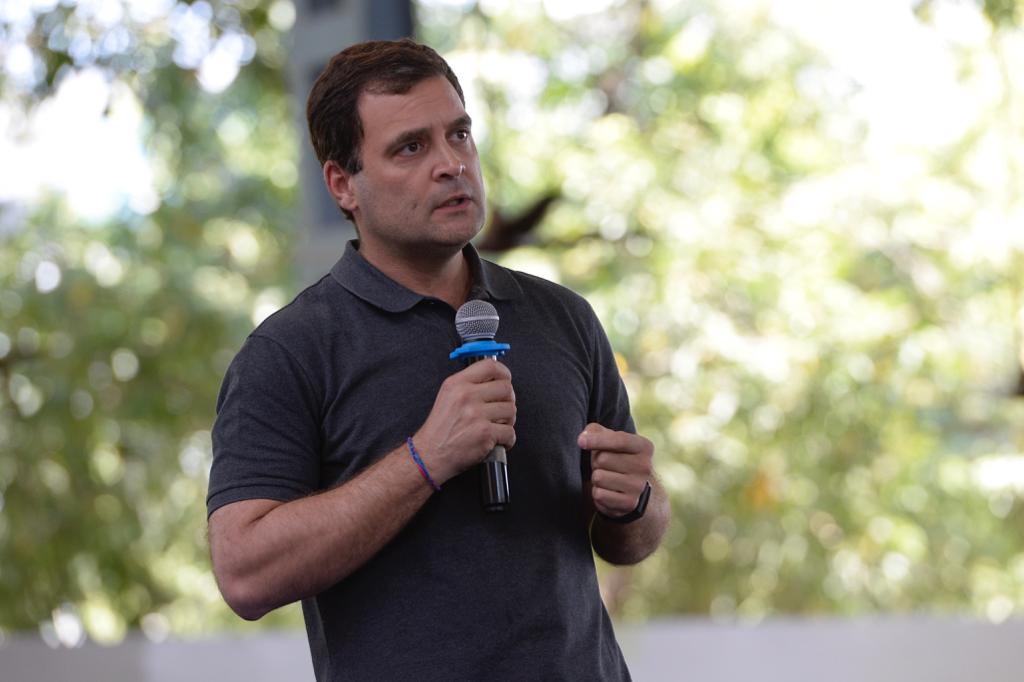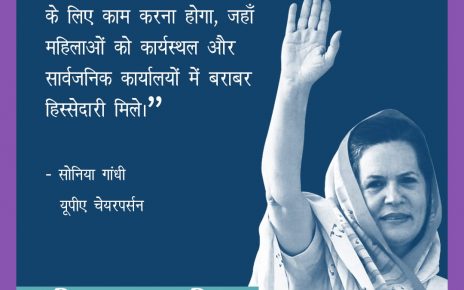One year ago Narendra Modi bypassed the Reserve Bank of India, locked his cabinet in a room and gave the country just four hours notice before announcing his arbitrary and unilateral demonetisation scheme.
Overnight 86 per cent of the value of India’s currency was withdrawn from circulation. The prime minister claimed his decision was aimed at wiping out corruption. Twelve months on the only thing he has wiped out is confidence in our once booming economy. Demonetisation has wiped out 2 per cent of India’s gross domestic product, destroyed the informal labour sector and has wiped out many small and medium businesses. It has ruined the lives of millions of hard-working Indians.
The Centre for Monitoring Indian Economy has calculated that over 1.5m people lost their jobs in the first four months of 2017 due to demonetisation. This year, a hastily imposed and poorly conceptualised goods and services tax dealt another blow to our economy.
Bureaucratic and complex, it has devastated livelihoods, creating a modern day “Licence Raj” that imposes rigid controls and gives vast powers to government officials. These two acts come at a time when global forces place particular demands on India’s economic model. One of the primary responsibilities of a state is to provide vocation to its people.
China’s global monopoly on blue-collar jobs is a fundamental challenge to other states. This has created millions of disenfranchised and angry workers who express their frustration at the ballot box — whether in votes for Mr Modi, Brexit, or Donald Trump. The rise of democratically elected autocrats, such as Mr Modi, is driven by two factors: a massive increase in connectivity and its profound impact on institutions; and, second, China’s dominance of the global job market. In democracies, information once resided in institutional silos accessible only to a limited number of people. The internet has destroyed those monopolies.
Connectivity and the transparency it inspires has positively transformed the world, but in doing so it has also irreparably damaged the machinery of our institutions. The resulting fragmentation has created an environment in which strongmen can flourish apparently unchecked. On the jobs front, while the west promoted globalisation, free trade and open markets as the road to the promised land, it also hollowed out its own manufacturing communities. Instead of managing the labour conflicts in their factories, western and Indian capitalists decided to offshore manufacturing.
Meanwhile, the Chinese Communist party, sitting on an explosive social problem of its own in the 1970s, embraced the western world’s labour conflict. As Deng Xiaoping said, it doesn’t matter what colour the cat is as long as it catches the mouse. Today, the Chinese cat has firmly caught the global manufacturing mouse.
Chinese political organisation combined with communications technology to transform the factory. In the 1990s, Chinese manufacturing accounted for a mere 3 per cent of the world’s goods by output value, today that figure is closer to a quarter. Their costs are lower than any of their western competitors; they manufacture at scale; and are not burdened by dissent, workers’ rights or the interruptions of transparency. According to official figures, China currently creates on average 50,000 jobs every single day; India under Mr Modi manages only 500. This advantage comes with a brutal cost — China’s people are not free to speak, to dissent or to question and those that do are swiftly and severely punished.
This is not a model India should emulate. With connectivity but no threat from Chinese productivity, there would still be blue-collar jobs in the west and India. With Chinese productivity but no connectivity, economies would suffer but institutions would still function unchallenged. It is the combination of the two factors together that is devastating. For India, the real force capable of meeting the Chinese job challenge is our huge network of micro, small and medium businesses.
They represent India’s innovative capabilities and have the skills, knowledge and understanding to take on China’s manufacturing machine. We urgently need to empower these networks and connect them to capital and technology. But instead of helping them grow, the Modi government has fatally wounded them with demonetisation and a flawed new tax. The challenge for liberal democracies across the world is to compete with Chinese organisation in a world with 21st-century levels of connectivity, while maintaining our liberal values.
Mr Modi has damaged India by converting anger created by joblessness and lack of economic opportunity into communal hatred. He has chosen to hide behind a shallow, hate-filled political narrative. Anger might have brought Mr Modi to power but it will never create jobs or fix India’s institutions.
The writer is vice-president of the Indian National Congress



Comments are closed.